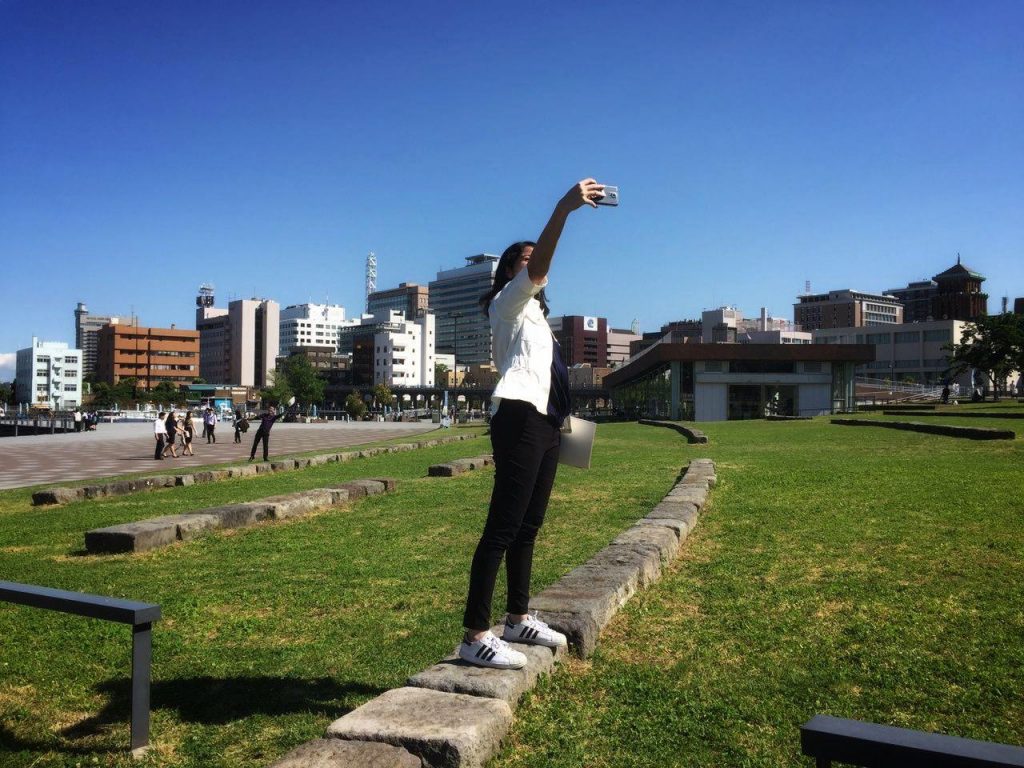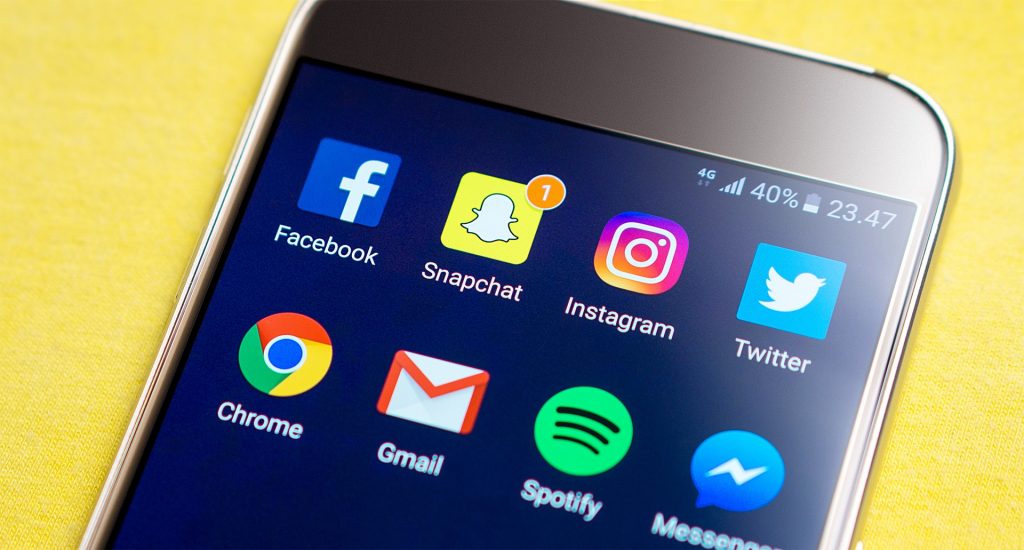By Nurin Nazifa Binte Mohd Yusoff
I recently came across a CNN article that discussed social media’s impact on mental health. It highlighted the findings of a UK-based study conducted by the Royal Society for Public Health, and involved around 1,500 young people aged between 14 to 24 years. Entitled #StatusofMind, it reported that out of many popular social media platforms, Instagram demonstrated the most negative effects on users’ mental health, evoking in them feelings of inadequacy, anxiety, depression, loneliness, worthlessness and body image issues. Snapchat came closely behind, followed by Facebook and Twitter. YouTube, on the other hand, was found to have a positive effect on mental health.
As a youth from the same age category, I am not surprised by the results of this report. In fact, I could not agree more, especially about Instagram’s ability to bring up a particular emotion whenever I spend time on it: FOMO, otherwise known as the Fear of Missing Out.

But speaking more generally as a social media user, I am disturbed by technology’s ability to take over how we think and feel as human beings. Since reading that particular CNN article, and reflecting more deeply about social media’s role in my personal life, I have made the conscious decision not to allow social media to govern my thoughts and emotions. Unfortunately, most of us cannot avoid using social media entirely. Some need social media accounts to run their businesses and reach out to audiences, while others use it to stay in touch with relatives and friends from other parts of the world, or to remain connected with former classmates and colleagues. There are also people who maintain active social media accounts because they simply do not want to feel left out, lest FOMO rears its ugly head. Being no stranger to FOMO, I have often fallen into the last category of social media users. Lately, however, I have become more determined not to let it get the better of me, and to explore ways in which I can cultivate a healthier relationship with social media. In my quest to balance my social media activity and general well-being, I have therefore put together my five handy “rules” which I apply (as diligently as I can) to ensure I stay connected and centred.
RULE #1. Want, Not Need
Post on social media because you want to, not because you need to. A friend of mine once said she felt a constant need to update her Facebook or Instagram with photos and updates about her life. If she didn’t do so, she claimed, her friends and followers might think her life was dull and unexciting. Do you remember the simpler times when you shared photos and thoughts online because it was a fun and spontaneous thing to do, and not because you felt compelled? My first tip is about going back to those simpler times, and being active on social media only insofar as you want to!

Social media does not have to be pre-meditated and calculated, even if everyone else is Facebook-ing and posting Instastories to show that they’re having the most amazing time. Chances are, these same friends are too busy capturing the most Insta-worthy selfie or writing the wittiest caption to worry about your lack of updates—or even go as far as to assume you have a “dull and unexciting life”. The F in FOMO stands for fear, and whatever that represents is not always the truth. The truth, on the other hand, is that life goes on, however frequently or infrequently you update your social media pages.
RULE #2. Post, and Move On
We all know at least a few exceptionally “popular” people whose photos draw a constant stream of “Likes” and whose posts get so many shares they practically go viral. Ten within the first minute or two, subsequently 50 in the next five minutes, and so on. I’ve been guilty myself of being preoccupied with “Likes” and “Shares”, reading that as a sign of how well-received my posts are, and by extension, wondering what that means about me as a person—"less interesting, less popular, less liked”? I used to scroll through and refresh my Instagram feed constantly, only to get demoralised to see how my “Likes” stacked against those of my peers. In the beginning, I experimented with different ways to boost the popularity of my posts, including finding the most opportune time of the day to publish something, i.e., when people were most likely to see it in their feed. Most of the time, however, these efforts did not make much of a difference—except to hurt my own self-esteem.

If I had followed Rule #1 “Want, Not Need”, my act of sharing a photo or piece of information online would have been enjoyable and fun in itself. What followed after (number of “Likes” or “Shares”) would thus be a separate issue, and it should not have cost me my self-esteem. Lesson learned: post, and then move on. Resist the temptation to keep refreshing your page or actively monitoring your number of “Likes” or “Shares”. Most people do not think too deeply about why they choose to “Like” or “Share” a post; likewise, there is no need to or read too much into what it means to have more or less of them.
RULE #3. Consider the Returns on Your Investment
Unless you are a social media influencer who gets paid to promote products and services, there is no need to run your social media accounts like you would a business, i.e. devoting a good part of your day to crafting the most polished copy and editing photos to perfection. If your only reward is a higher number of “Likes” and “Shares”—and a temporary boost to your self-esteem—that hardly seems like a wise investment of your time and energy.

Why not, then, adopt a more practical approach towards social media? Think about it: since no one is paying you to publish photos of your latest holiday, or reimbursing you for readership and engagement, why treat it like a job? In a similar vein, if the “returns” you seek are your own enjoyment of using the platforms, invest only up to the point when the activity stops being enjoyable.
RULE #4. Schedule It and Stick to It
Discipline your level of social media usage and activity by scheduling a specific time for it. Less time on social media also frees you up to live mindfully in your present moment—offline. Dr Aarti Gupta, a cognitive-behavioural therapy (CBT) specialist for anxiety and related disorders, recommends setting aside a time of the day to catch up on your social media. As she describes in her article, “Tips to Get Over Your FOMO, or Fear of Missing Out”: “Let’s say that you take the bus home from work every day from 5:30 to 6:10 pm. Make this your one and only time of day to check your accounts. Find a time of day that works for you to catch up with Facebook, and stick to it.”

Adding to Dr Gupta’s advice, I would even go further to suggest limiting the number of social media platforms you access during this dedicated timeframe. For instance, Monday’s “social media hour” could be spent on Facebook and YouTube, and Tuesday’s could be just Instagram and Twitter—all while applying a degree of flexibility to ensure the information you are taking in is not too overwhelming.
RULE #5. Go Turkey Occasionally
Here’s an interesting tip I learned from this article in The Guardian. Its author Arwa Mahdawi described her desire to limit her social media usage, but discussed how she was not ready to go as far as to delete her Facebook account entirely. In the end, she found an effective middle ground by deleting/disabling all the social media apps on her mobile phone. Not being able to see the Facebook or Instagram logos on her home screen also meant there were no more temptations for her to open and check the accounts, and this made her “social media break” a more conducive one.

I have tried this method out for myself and found it to be very useful, especially since I have a tendency to check my phone screen every ten minutes. With those apps gone, I found less reason to keep checking my phone for alerts. During my “social media cleanse”, there were definitely times when I was tempted access my Facebook or Instagram accounts; however, the hassle of having to re-download the apps deterred me from doing so. Additionally, disabling the apps during my study break saved me from unnecessary distractions during my exam preparations. When I eventually reinstalled the apps on my phone, I thought that my social-media-starved self would get back into it with a voracious appetite and be hungry to catch up on what I missed. Surprisingly, however, this was not true. Instead, I discovered that I had already broken my habit of needing to check my social media accounts constantly.
As long as social media technologies are prevalent—bigger platforms like Facebook, Twitter, Instagram and YouTube look set to remain in our near future—and as long as people use them to engage and connect with others, it seems unlikely for the world to be entirely rid of social-media-related FOMO, depression, anxiety, and so on. That is why I consider it so important to re-examine our relationship with social media. To what extent do these tools enhance our quality of life, and conversely, how honest are we with their negative impact on our psyche and well-being?
It's easy to envision a world without social media, since most people can remember a time before Facebook, and when human connections were made and maintained offline. But perhaps social media is not the root cause of FOMO itself, since there were always books, newspapers and magazines to read about others people’s lives and feel as if the “grass is always greener on the other side”. Instead, what social media has done is amplified the “greener grass” or simply made it easier for one to paint a “greener picture”.
What it all comes down to, I believe, is a need for less fear, and more self-awareness and discipline. Only then can we move past FOMO and come to a place where we can see beautiful pictures of a friend’s engagement party or their firstborn child for what they are—a highlight reel, and by no means the full story.
 |
Nurin Nazifa Binte Mohd Yusoff is a Year 4 undergraduate student from the Singapore Management University, where she studies Business Management with majors in Operations Management and Corporate Communications. Keen to develop a greater understanding of social innovation around the region, Nurin’s areas of interest include youth empowerment, social inclusion, entrepreneurship and entertainment. She can be reached at hello@socialspacemag.org |








Comments